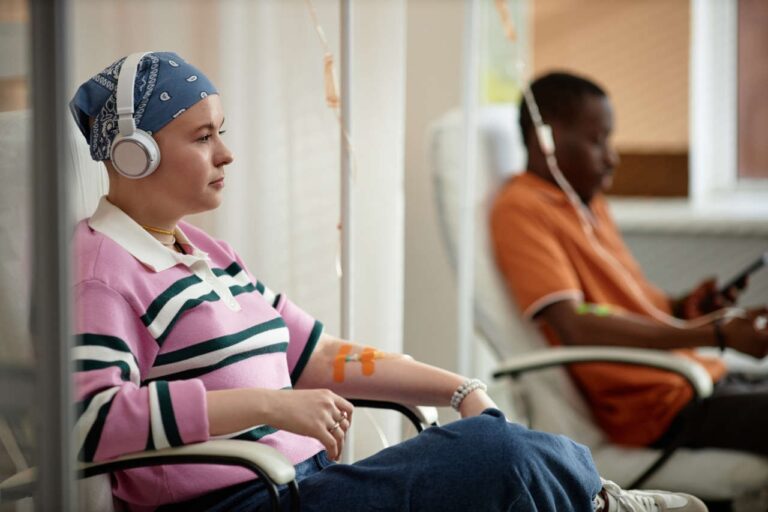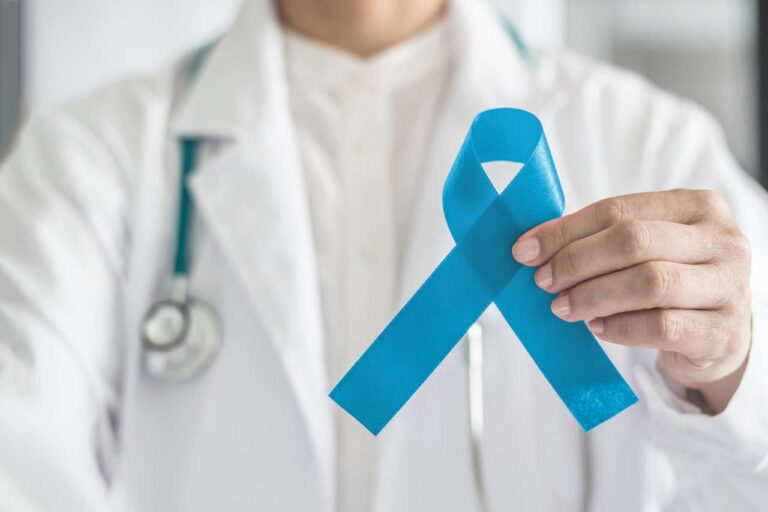
Stivarga (generic name: regorafenib) is a drug used to treat cancer by preventing the growth and spread of malignant cells in the body. Unlike other cancer medications, Stivarga treats different types of cancers, including liver cancer, colorectal cancer, and a rare tumor that affects the human intestines, esophagus, and stomach. Although effective against a variety of cancer types, this medication should only be administered after all other therapeutic alternatives have failed.
What Is Stivarga Used To Treat?
There are three major cancer types that can be treated using Stivarga:
Colorectal Cancer
Colorectal cancer is also known as cancer of the bowel and rectum. Stivarga is an effective colorectal cancer therapy option, particularly when the disease has progressed to other body parts. However, before using Stivarga, the patient must have undergone other treatment options, such as chemotherapy based on drugs like fluoropyrimidines, as well as anti-VEGF and anti-EGFR treatment therapies.
Hepatocellular Carcinoma
Hepatocellular Carcinoma (HCC) is a type of cancer that affects the liver. The patient should have tried sorafenib before opting for treatment with Stivarga.
Gastrointestinal Stromal Tumor (GIST)
GIST is rare type of cancer that usually affects the stomach, intestines, and throat. Stivarga is a treatment option for GIST when it cannot be surgically removed or has spread to other body parts. Before using for Stivarga, the patient must have tried treatment using sunitinib and imatinib.
How Does It Work?
Stivarga works through the action of its active agent, regorafenib. Regorafenib is a protein kinase inhibitor which means that its function is to block the activities of enzymes responsible for the development of blood supply to tumors.
Once these enzymes are suppressed and the blood supply to the tumor is interrupted, the growth of these cancer cells gets inhibited, and they begin to degrade. Thus, their growth, development, and spread get halted, and the patient may begin to feel better.
Effectiveness and Approval
Relevant authorities have approved using Stivarga to treat different cancer types based on the results of clinical trials and studies conducted to test the drug’s efficacy.
For colorectal cancer, a study was carried out on 760 participants who did not show signs of recovery after previous therapies. It was discovered in this study, that the people who used Stivarga lived longer (an average of 6.4 months) than those who did not take Stivarga.
As for GIST, 199 patients participated in a test, showing that the patients who used Stivarga lived longer without their conditions worsening. On average, patients who used Stivarga to treat GIST lived for 4.8 months, while those who did not take the medication only lived for 0.9 months.
Finally, 573 patients underwent a test for measuring Stivarga’s efficacy in treating HCC, and the results showed that there is a possibility of living longer when you use Stivarga to treat HCC than when you don’t. In the test, the patients who used Stivarga lived for 10.6 months, while those that did not lived for 7.8 months.
Drug Administration and Dosage
A physician with sufficient experience treating cancer, particularly the aforementioned cancer types, should oversee the usage of Stivarga. The only way to get the drug is with a prescription.
The most common drug form for Stivarga is tablets. Each tablet is 40 mg, and the medication is taken in a 4-week treatment cycle.
The first recommended dose is 160 mg: four 40 mg tablets once every day for three weeks. This is then followed by a week of not taking the drug. The medication is taken daily with a light, low-fat, low-calorie meal, along with water.
If you skip a dose, take it immediately after you remember. However, if it is almost time for your next dose, cancel out the missed dose and only take the next dose. You must never take two doses at the same time. If you overdose, reach out to your doctor or healthcare facility immediately.
Precautions When Taking Stivarga

The medication should be used for as long as the patient continues to benefit from the treatment or until the side effects become too severe. The dosage may be reduced or stopped altogether if certain side effects start to develop. While on the treatment, liver function and blood pressure must be checked regularly.
Stivarga can affect wound healing, including surgical incisions. Inform your doctor immediately if you need surgery. Also, stop taking the medication two weeks before the surgery to be safe.
The active agent, regorafenib, may interact with grapefruit, causing serious side effects; therefore, avoid grapefruit or grapefruit juice while on this medication. Also, avoid using herbal supplements that contain St. John’s wort.
Finally, store the drug in a clean place, away from moisture and heat, and ensure that the medication remains in its original container. If you must change it, ensure that it is in a canister with moisture-absorbing preservatives. Dispose of unused Stivarga after seven weeks of opening the bottle.
Stivarga Side Effects
Some of the side effects that you may note when using Stivarga include:
- Headache and change in mental status
- Heart problems
- Signs of Infections
- Increased blood pressure
- Severe bleeding
- Perforation
- Hand-foot skin reaction and severe skin rash
- Liver problems such as yellowing of skin or dark “tea-colored” urine
- Wound healing problems
You should see a doctor immediately if you notice any of these side effects.
Cost
The wholesale acquisition cost for a 40 mg Stivarga is $21,546 for a supply of 84 tablets. This is only an estimate because a number of variables, including your location, insurance, healthcare plan, and pharmacy, will affect the actual cost of the drug.












